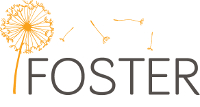Horizon Europe is the new framework financed by the European Commission to promote Research and Innovation. The programme goes beyond the open access to scientific publication and fosters a range of measures for the advancement of Open Science, from the proposal stage until project reporting.
In evaluating the proposal, Open Science practices are considered under "Excellence" e "Quality and efficiency of implementation." Open Science practices include early and open sharing of research outputs (e.g., pre-print, pre-registration of experiments and results, etc.), participation in open peer-review, open access to scientific results, the involvement of relevant knowledge actors, including citizens, civil society and end users in the co-creation of R&I agendas, and contents (Citizen Science).
Horizon Europe foresees either mandatory or recommended OS practices. The recommended ones refer to the scientific methodology, the open peer-review, FAIR data management, dissemination, and public engagement.
Mandatory Open Science practices are required for all projects through the Grant Agreement and include:
- the management of research data through a Data Management Plan;
- open access to scientific publications;
- access to FAIR data following the principle as open as possible, as closed as necessary;
- the definition of measure to evaluate the reproducibility of results.
Both mandatory and recommended practices are incentivised through their evaluation at the proposal stage and may favor the acceptance for financing. Moreover, it is essential to refer to the documentation of the specific call, as it may contemplate further obligations and the use of infrastructures federated in the European Open Science Cloud.
During the project's lifetime, beneficiaries should refer to Article 17 - Annex 5 of the Grant Agreement: "Communication, dissemination, Open Science and visibility." The article concerns communication and dissemination practices in research projects and regulates the application of OS practices. The dedicated section is divided into three subparts: open access to scientific publications, research data management, and additional practices. Any breach of the obligations stated in the Grant Agreement may result in financial consequences such as fund reduction.
Annex 5 - Article 17: Open access to scientific publications
Rules and regulations for Open Access to scientific publications are:- Immediate access to the postprint through the deposit in a trusted repository. No embargo is allowed. Trusted repositories are: certified archives (e.g., Core Trust Seal, DIN, ISO, etc.), general or institutional archives that provide a unique ID, data integrity and access, long-term preservation, licenses, embargo, or restricted access management, and security levels.
- Authors must maintain their rights, using addenda to contracts where necessary. To this end, authors can:
- publish their research on the platform Open Research Europe, made available by the EC at no additional costs;
- publish their research in an OA journal: only in this case APC costs are eligible;
- publish their research in a traditional journal, depositing the postprint in an open archive with a CC BY license or equivalent. If necessary, authors may use addenda to contracts to avoid the embargo period imposed by the publisher.
- Only the costs sustained for their digital open access publication are eligible for books and book chapters. Publication costs for paper copies are not eligible. Authors may use a more restrictive license, such as CC BY-NC-ND or equivalent.
ATTENTION: the costs sustained to publish an OA article in a hybrid journal are no longer eligible. Authors are free to publish in a hybrid journal, but they must be sure that they are allowed to deposit the postprint without restrictions.
Moreover, beneficiaries must guarantee free access to the bibliographic metadata of the deposited publication, using a CC BY license or equivalent and being compliant with the FAIR principles. Bibliographic metadata should indicate:- publication title, author(s), publication date, journal title;
- name of the action (framework programme), project acronym, and number;
- terms of the license applied;
- a persistent identifier of the publication (e.g., DOI) and, where applicable, IDs of supplementary material(s) (e.g., datasets, software, code, etc.).
Annex 5 - Article 17: Research Data Management (RDM)
Horizon Europe beneficiaries must provide for the management of the research data in digital format, complying with the FAIR principles and performing the following actions:- draft a Data Management Plan (DMP) detailing RDM practices. The document should be regularly updated during the project lifetime;
- deposit the dataset(s) in a trusted repository as soon as possible and in line with the DMP;
- data must be freely accessible through licenses such as CC BY, CC 0, or equivalent, following the principle as open as possible, as closed as necessary. If open access is not provided (to some or all data), this must be justified in the DMP.
- dataset: description, date of deposit, author(s), venue, and embargo;
- name of the action (framework programme), project acronym, and number;
- terms of the license applied;
- a persistent identifier of the publication (e.g., DOI) and, where applicable, IDs of supplementary material(s).
Annex 5 - Article 17: Additional practices
Where the call conditions impose additional obligations regarding open science practices, the beneficiaries must also comply with those. In particular:
-
obligations regarding the validation of scientific publications: beneficiaries must provide in the archive information on the deposit of data, software, algorithms protocols, workflows, laboratory notebooks, etc., that may be useful to validate the findings of the publication. It is necessary to clarify the access mode if it is regulated by commercial products, the type, and the version.
- obligations regarding data reuse and validation: besides the description of the dataset, it is necessary to clarify the access mode if it is regulated by commercial products, the type, and the version.
A practical "Guide to Open Science in Horizon Europe" has been drafted by Elena Giglia (UniTo), and it is available here in its English version.









